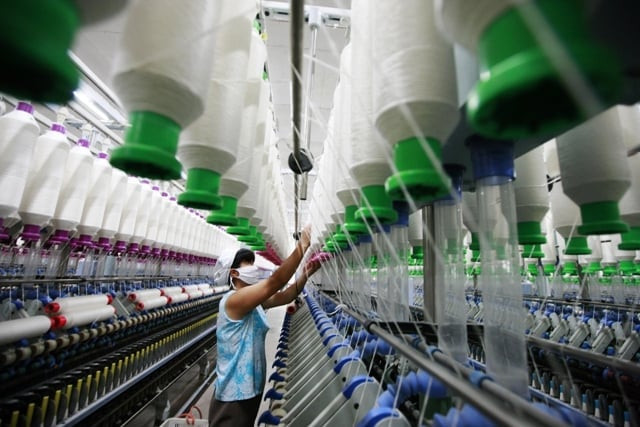Eurozone debt: Exporters to take biggest hit if crisis deepens
China sees loss of millions of jobs as global demand falls.

While Zhejiang LF Gifts and Decoration Company has not yet laid off workers at its small factory in the eastern province of Zhejiang, Wu said the outlook for the belt market was bleak.
Manufacturing activity in export-driven China has been contracting for several months as overseas demand for Chinese-made shoes and gadgets weakens and analysts expect the situation to get worse if the eurozone crisis deepens.
The European Union is the world’s biggest buyer of Chinese exports - worth about $380 billion in 2010 - and a collapse in demand could trigger heavy job losses in Chinese factories, which employ millions of people, analysts said.
“An escalation of the eurozone debt crisis would be a triple whammy for China,” Eswar Prasad, a professor at Cornell University in New York and a former head of the IMF’s China division, told AFP.
“It would result in a stronger dollar and, by extension, a stronger yuan, and hurt growth in Europe, which remains China’s largest export market.
“The knock-on effects on confidence and financial markets in other advanced economies would dampen their demand for China’s imports.”
Ren Xianfang, an economist at IHS Global Insight in Beijing, agrees.
“In the most extreme case that European demand collapses, the impact will be quite significant as the EU accounts for about one-fifth of China’s total exports,” Ren said.
“But if the US holds up, the impact won’t be as huge as in 2008.”
Europe’s struggling economies are increasingly looking to cash-rich China - which is investing a rising portion of its world-leading foreign exchange reserves in euro-denominated assets - as a possible rescuer.
While Chinese leaders have repeatedly expressed confidence in the region’s economies during the debt upheaval, Beijing has indicated it won’t be bumping up its economic growth rate in order to save the global economy.
Central bank governor Zhou Xiaochuan said inflation remained a “top concern” for Chinese policymakers during recent annual meetings of the International Monetary Fund and World Bank in Washington.
Emerging economies such as China, which contributed heavily to the global recovery from the 2008 crisis, now faced stiff headwinds from “excessive global liquidity, volatile cross-border flows, weakening external demand, and fluctuating commodity prices,” Zhou said.
China went on a massive spending spree in late 2008, unveiling a $586 billion stimulus package and ordering state-owned banks to open their credit valves to spur economic activity.
The stimulus helped China grow even as other major economies sank into recession, but the country is now battling to contain rising inflation and soaring property prices.
But Prasad said policymakers would not hesitate to respond aggressively to the eurozone crisis if it threatened jobs in China, where leaders worry about the potential for social unrest in the country of more than 1.3 billion people.
Published in The Express Tribune, October 10th, 2011.



















COMMENTS
Comments are moderated and generally will be posted if they are on-topic and not abusive.
For more information, please see our Comments FAQ